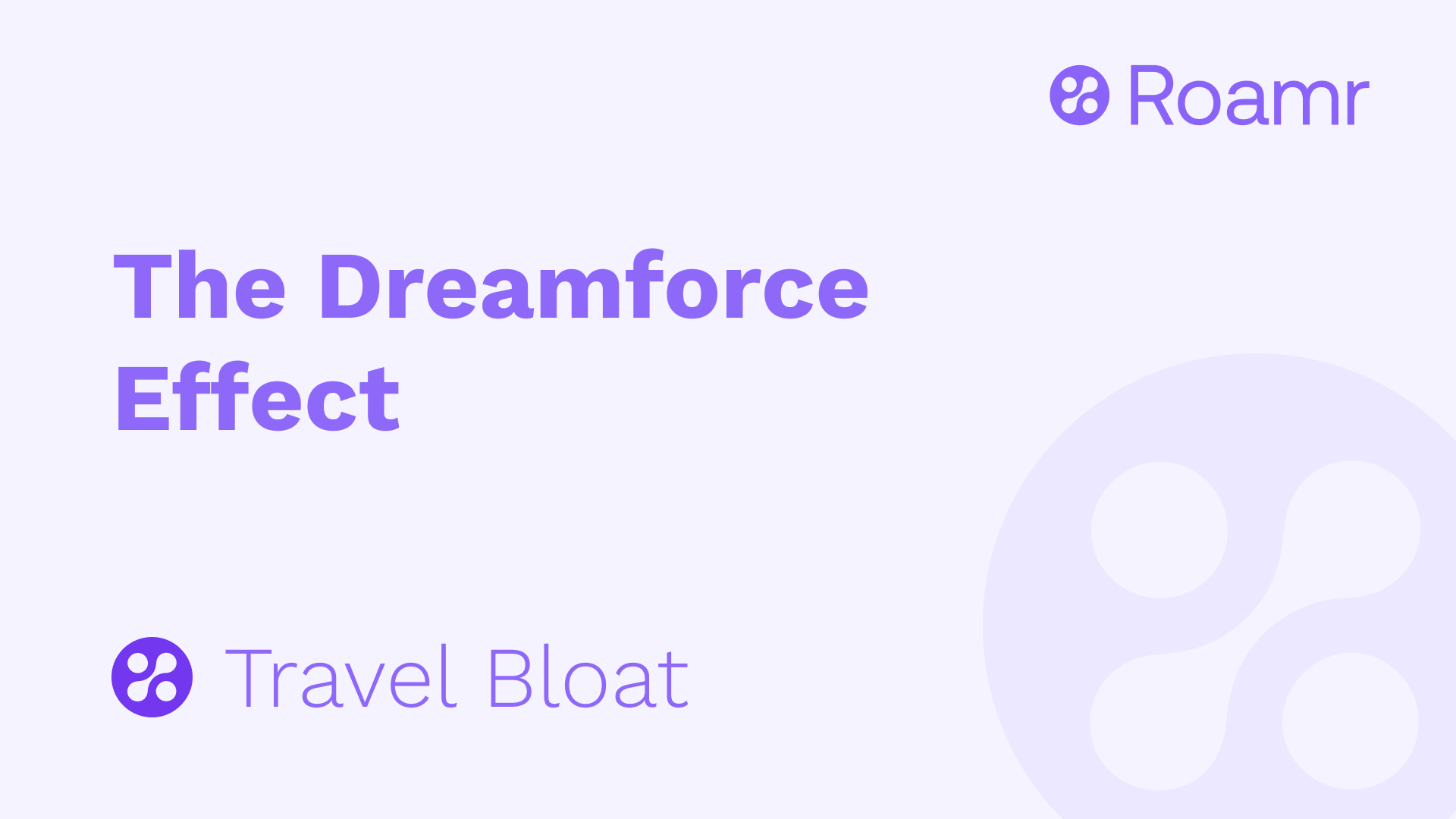Travel bloat and how it effects corporate travel costs
Let’s get one thing straight: travel bloat has nothing to do with your stomach.
It’s what happens when businesses leave money on the table — or rather, hand it over to airlines and hotels — by booking too late.
So, what is travel bloat?
Put simply, travel bloat is the extra cost a company absorbs by delaying bookings they already know are coming. It’s not about prices being high in general — it’s about missing the window where they’re lower.
If your team knows they need to travel, but doesn’t lock things in, the cost between when the decision is made and when it’s actually booked - that’s travel bloat.
And it’s not just flights and hotels. It shows up in event fees, meeting space rentals, workspace bookings, and more — any cost associated with the trip that inflates because of poor timing.
It’s a lead time problem
Travel bloat is a product of many factors but a big one is due short booking lead times, and there’s another layer: whether the trip is personal or professional.
Let’s take a look at the big-ticket items — transport and accommodation — and how lead times differ.
✈️ Transport: Flights
When people book international leisure travel, they plan ahead — typically 90 days out. The majority of business travel is booked about a week out. (Statista, 2023)
The impact on cost is major.
Take a round-trip from Dublin to New York, for example:
- 90 days in advance: ~€250
- 14 days in advance: ~€700
That’s a up to 180% increase, just for waiting.
🏨 Accommodation: Hotels
The same pattern applies to hotels. Leisure travelers often book up to 17 weeks in advance, while business travelers tend to wait until the final two weeks or so. (IPA, 2025)
The average hotel price in Dublin is upwards of €250 per night (Statista, 2023) but with virtually all hotel using dynamic pricing this figure increases the closer to the date. Dynamic pricing is a product of many factors but ultimate as supply and time to booking decrease price increases. (SiteMinder, 2025)
The trend is clear
Yes, pricing fluctuates based on things like seasonality, location, and availability. But the pattern doesn’t lie: booking late costs more. Every time.
Some companies use tools with point-based systems to nudge employees to book earlier — but travel bloat still persists. Why? Because incentives often don’t align with behaviour.
The behaviour is validated, personal travel habits show individuals are incentivised by financial savings. The question how do we translate this into the professional realm?
At Roamr, we’re flipping the script, paying employees not hotels.
Sound interesting? Book a call and learn more!





